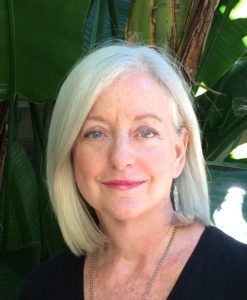by Valerie Davisson
Before we get started, how was your 2017? If you set writing goals, did you reach them?
When I looked back over the year, I felt pretty good. Devil’s Claw—Book 3 in my Logan series—came out this month in spite of an unexpected back injury that occurred just as I was moving up to the Oregon coast to buy my little dream cottage and write full-time.
Once I got settled and started looking ahead, I realized that even though I’ve achieved some of my goals, I wanted to step up my game for 2018. The problem was, I wasn’t sure what I needed to do. Checking around the web, I found an author’s webinar that looked interesting. Figured I’d start there.
I didn’t expect to learn much, but taking this step was a testament to trying new things, to continually looking for ways to improve. Yes, the workshop leaders repeated many basics I knew already, but when they got to production schedules, I had an “aha!” moment. It went way beyond setting word count goals.
What came together for me in the webinar was a description of a typical production schedule from Research to Launch. It includes all those non-writing tasks I like to avoid, but are critical. I took a stab at making one for Book 4, the story swimming around in my head for the last few months during the move.
You will have to adjust it to your project and personal life, but here is a sample production schedule for a 75,000 word novel as provided in the webinar. Give a lot of thought to the amount of time you allot for each stage of your project. Only you know what is challenging, but not impossible, for you to achieve. I’ve made notes where I’ve changed things for my own production schedule, as well.
Also, a note about the end of your production schedule. I did not include marketing tasks such as submitting your title to BookBub or The Fussy Librarian, hiring a publicist, or putting your book up for audition on Audible. These differ for every author, but be sure to schedule those steps, also. Just remember, the industry is a moving target and there are always new marketing avenues to try.
Jan 1 – Jan 15: Research and Outline
I lengthened this first step to a month for my own production schedule. I love the research phase, and since I tend to have fairly intricate sub plots, it takes me a while to untangle various story lines and keep the action moving.
Jan 15 – Feb 23: Rough Draft
Write it! Using the workshop leaders’ pacing, it takes about 6 weeks, writing 5 days a week at 2,500 words per day. I shortened my goal to 2,000 words per day, due to a tricky back that limits my sit time. Do what works for you—just make it realistic.
Feb 23: Cover Design, Title, Marketing Materials
This is where you really ask yourself what your book is about, so the cover design matches your content, and you can laser focus marketing to your target audience. I recommend hiring a professional cover designer if your publisher does not provide this service. Even if you are self-publishing, a professional cover is worth gold.
Feb 23 – March 9: Alpha Readers
The mistake I have made in the past is skipping this step and only using Beta Readers. Your Alpha Readers can help spot structural and pacing issues long before you spend money on polishing your final draft or send it off to your publisher or editor, only to find out you need a rewrite later. Allow at least two weeks for them to read and make useful comments. Finding the elusive Alpha Reader is for another blog post. My only comment here is you need to find someone who doesn’t mind wading through your first draft without being tempted to correct punctuation or typos. You’re looking for structural comments here, not copyediting.
March 10 – 24: Second Draft
To me, this is the most critical step. You want to apply the notes from your alpha reader early in the process to get the story right before you spend a lot of time and money on polishing and publishing.
March 25 – April 13: Copy Edit
You or your publisher will send your first draft to your editor. Most editors take two to three weeks for this length novel. NOTE: Good editors book up fast, so you should schedule yours as soon as you create your production schedule. If you need a Content Editor, this back and forth process will take longer.
April 14 – April 21: Third Draft
Now is the time to accept or reject your copy editor’s suggested edits. You may need more time for this step, especially if you have the send the manuscript back to the copy editor for a final critique. It has gone quickly for me, so I am only allowing one week for this.
April 22 – April 29: Send to Proofreader
Once you’ve incorporated the copy editor’s comments, it’s time to send the manuscript to a proofreader for a final pass before formatting. You want to eliminate as many typos and textual errors as possible before the interior designer starts work.
April 30 – May 15: Interior Design & Layout
Send final, polished manuscript to publisher or interior designer for interior design and layout in print and eBook formats. If self-publishing, you might do this technical and creative task yourself, or you can hire someone to do it for you. Just watch for dangling lines.
May 16 – May 23: Final Proofing
Your final copies need to be checked for any errors that may have occurred during the previous process or not caught during the editing and proofing.
May 24: Launch Your Book!
May 25: Start Your Next Book
Yes, you need to schedule this step. If you want to go to Hawaii first, that’s OK. Just be sure and pick me up a box of dark chocolate-covered macadamia, caramel turtle things. I love those!
How have you built a production schedule? What tips and tricks do you use to plan your writing year?
***

Valerie Davisson, Author
A self-admitted book addict, Valerie Davisson was the kid with the flashlight under her pillow, reading in bed long after lights out. Growing up in different countries led to degrees in Cultural Anthropology, Teaching, and a pervasive interest in people and how we navigate our world. Writing is her Passion! She is the author of Saturday Salon: Bringing Conversation and Community Back Into Our Lives, and the new Mystery/Thriller series featuring strong, female protagonist Logan McKenna. You can find her on her website at www.ValerieDavisson.com.
*O.C. Writers is a participant in the Amazon Services LLC Associates Program, an affiliate advertising program designed to provide a means for us to earn fees by linking to Amazon.com and affiliated sites. By clicking on the book links anywhere on this site, we earn a small commission from your purchase.




One Reply to “Stepping Up Your 2018”